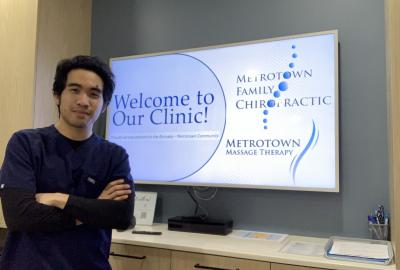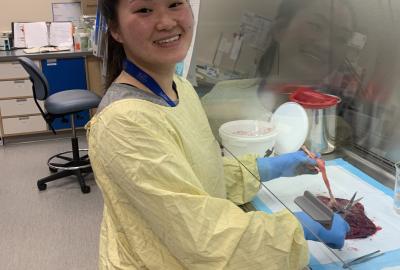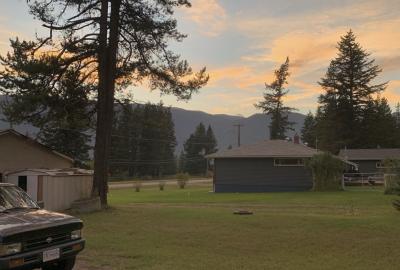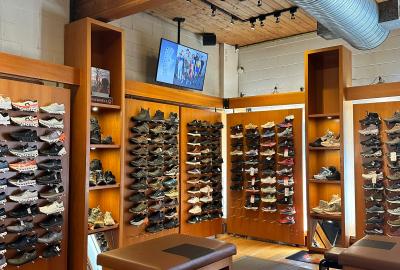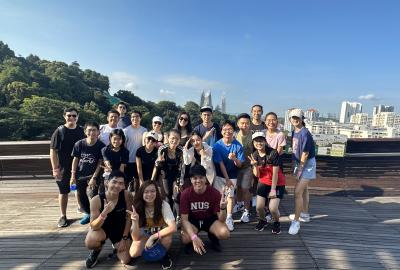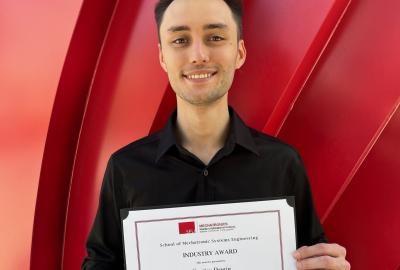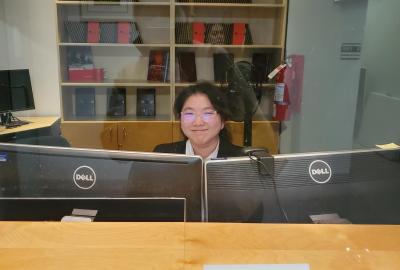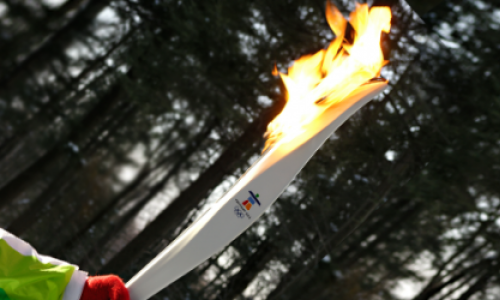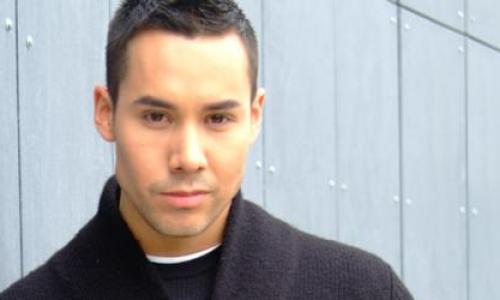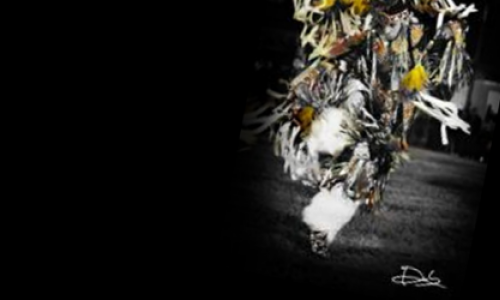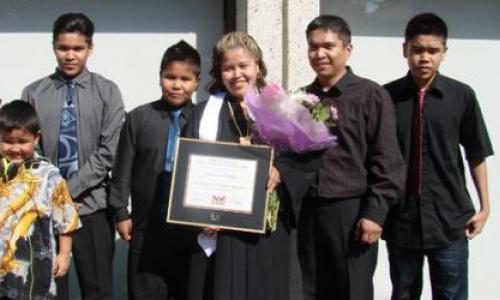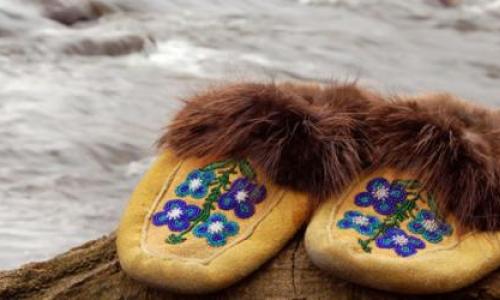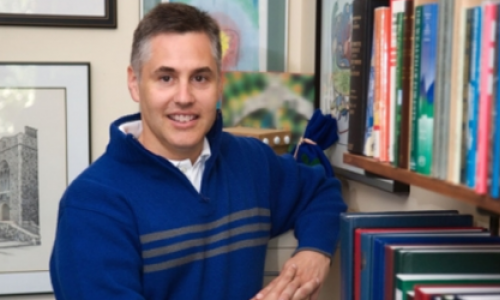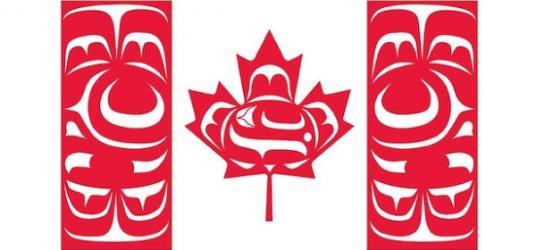
I love thoughtful and passionate debate. Especially about things that are important to me and those around me. I consider myself a Canadian citizen and because of that, I practice my right to vote. I am also aware, however, there are many views regarding the Indigenous vote and I I was interested in hearing these views. Sometimes taking into consideration opposing opinions can provide new insights. For example, the following debate made me question whether or not I actually do consider myself a Canadian citizen. And I discovered that, yes, I do.
I posed the question of the Indigenous vote and was met with several interesting and thought-provoking debates regarding the subject.
Debate One
Dawn: Rock the vote…it's part of why they never listen to us-they don't have to if we don't vote.
Kirstin: We legitimize their political power over our Nations when we vote in their elections!
Dawn: I suppose I don't see how they don't have political power over our nations - We are still wards of the government in their eyes. In order for us to be legitimized, we have to work with the system. If Harper's re-elected we can be sure that our sovereignty will not be respected for another term.
Kirstin: Their political sovereignty at its root stems from the denial of our self-determining capacity as Nations. Our existence as nations has been disrespected long before Harper came along.
I cannot say that I am a Cree person and be a Canadian at the same time. The Canadian legal system does not allow room for Cree’s to exist as Cree’s.
Christina: But are you not also Canadian?
Dawn: Right, I can agree with the latter statement, but I don't see how we can expect change in this country if we don't work with the politicians…"they count on us not voting." I am both Ktunaxa and Canadian. I think that's the fundamental difference. I think we can make room for us. If the TRC cases and the following events have shown anything to me, it's that.
Kirstin: As an alternative we embrace freedom. We act as free peoples, taking action where required. I am not a Canadian .
Dawn: I think that's where the fundamental difference comes into play - We can't convince people who don't think of themselves as Canadian to vote in a Canadian election.
Kirstin: Stand up for what you believe is right. Go beyond writing letters. Plant ourselves firmly on our territories. Have traditional leaders act on the belief that we don't need their recognition and their permission to defend what is important to us.
Dawn: I agree with that, but I suppose I think we need tactics from all angles, including voting for people who will stand up for us (or at least who say they will) .
Sandy: I think the argument that some make about not supporting the colonial system by voting is misguided considering that band elections and membership rules are very much designed by the colonizers too, yet many participate in those...
Kirstin: Using their political system against them has never worked for us
Dawn: How do we know that? We've never voted in numbers large enough to understand it. Also, I disagree - We've fought and won many battles. WE aren't their yet, but we can't forget to honour those who have pushed to go to court and win . (Delgamuk, Plint, etc. etc)
Kirstin: Aboriginal title right? That Indigenous peoples have Aboriginal titles over traditional lands for every thing except for anything land and resource based that is in the Canadian interest including mining, forestry, infrastructure...
So fundamentally meaningless if what we are trying to protect is our ability to protect our land bases.
Dawn: Plint was the case against church and government for residential schools. Do I think the settlements are perfect? No, but I do think they are changing the way that Canadians think about First Nations people (one mind at a time). As for Delgamuukw, I think we are still finding out. I'm not saying it's not an uphill battle by any means, but I do think that these things are coming into play. It's a time of change and growth. I recently heard it takes only a fraction of 1% the population meditating on one thing to tilt the scales, and I think we are doing that. Slowly but surely. Sorry - I shouldn't say the settlements are changing the thoughts, but education about schools is.
The BC teacher’s federation just voted to put more education about residential schools into the school system (and earlier than Grade 11). This is their system working for us. When we can change one mind, we can call that a victory.
Kirstin: But even the idea of having to appeal to the colonial authority for permissions for us to be ourselves is problematic. Filing a 'claim' is an act that identifies the structure of our relationship with the state. We position ourselves as lesser.
Kirstin: K now just to try to blow your mind... How odd would it be if we all voted in the elections of the Indigenous nations whose territories we lived on? And what if we followed all their protocols? I live on my traditional territory but I used to live in Vancouver. What if I voted in Musqueam elections?
Dawn: If they took away our right to vote...would that change people's minds? I think we'd be completely up in arms. (I would!) That's probably one of the main reasons I exercise my rights. As a woman too. I vote where I have the right to vote. If Squamish or Tsleil-Waututh offered me that right, I would happily take it after informing myself about it.
Kirstin: I have never cast a vote... But I surely participate democratically through other means .
Debate Two
Adrian: For years conservative politicians have been factoring native apathy about voting into their election strategies... They COUNT on us not voting. It's time we turned that around. If as many natives voted in the last election as non-natives, we wouldn't have a conservative majority government.
Cedric: Nope, I don't vote, gives them authority over me which they don't have SOVERIEGN AHNISHINAABEOJIBWE here .
Patty: There are other thoughts, am I Canadian or Anishnaabe? If I am Anishnaabe, why would I vote in a Canadian election? The reality is that the more things change the more they stay the same. Trudeau and Mulcair also support KXL and the tar sands. Despite the window dressing, nobody gets elected without the blessing and sanction of Business and Industry, so while the players change on the political stage, the song remains the same. Maybe focus should be on homecoming, involving ourselves in our local communities. The treaties are there, if our communities are strong then we will be able to counter whoever is in charge when they trample on FNIM rights. Because again, no matter who forms the next government, assimilation and termination are all that is really on the table.
Adrian: Voting doesn't affect your membership or native status. At one time it did, before 1960 you had to renounce your status and become "enfranchised" as a full Canadian citizen - in order to vote. Once that law was repealed, native people were extended the right to vote.
Bill: My mother shared this: a barrel of pickle juice with a tiny, tiny leak would be empty in time. I feel at times my vote does not matter, however should my vote be one of those droplets of juice in time the government's time will run out. First I must vote.
Patty: It doesn't affect your status either way, but consider this; offering somebody the vote provides him or her with more investment in the colonial power structure. Voting may make some changes to the expression of that power, but only in very limited ways. The Liberals wrote the White Paper. The power itself remains colonial. Why would an oppressed people participate in colonial governance? We can't vote ourselves out of colonialism, and that is the real problem.
Jason: The last election is a prime example of why our people should be voting. The recent changes in the Indian Act tell me we as a people need to take a good chunk of the blame for those changes. Anishnabe or not, we are all considered Canadian citizens under the law and have the legal right to vote. I challenge every Native who outright refused to vote to tell me how you helped our people.
I say those of you that refuse, due to some sovereignty issues are just as bad as the Harper government for our people. Considering 7 years ago we counted for 1,172,790 so perhaps 500,000 voters, we had more than enough people 2011 to sway the vote whichever way we please if we just all got out to vote! At the very least the Conservatives would not have had their majority and Idle No More may not have happened, and if it did we would have been well heard and listened to and these changes would have been shelved if not trashed!
Vote Green in 2016 if you want to see real change, a real difference in how the government is run and how our rights and opinions are respected! The Green Party is the only party still untainted by the power that consumes the rest.
Bill: We just experienced the impossible. We walked with 70 thousands souls for residential survivors. Can we be a part of change? Yes, we just did.
Patty: You are correct Bill, but those changes you are pointing to are related to grass roots, not voting. And I agree Jason. Simply staying home and not voting on some kind of principle is not worth much which is why my comment spoke to focusing on homecoming and strengthening our communities, urban and reserve. We don't need to vote to challenge the colonial trampling of treaty rights. We need strong communities and leaders who don't sit down at termination tables. Otherwise all we are is another special interest group trying to bust out the vote.
Jason: Actually we do need to vote challenge the colonial trampling on our treaty rights. Marching has accomplished nothing. Find the most sympathetic party to our needs and wants, and vote.
Craig: Audre Lorde, " the masters tools will never dismantle the masters house"
Debate Three
Waseya: The Canadian system is troubled. Because of that ours is troubled, with elected chiefs and council, yet we vote for our troubled ways. We have a double edged sword to work with here, we ARE sovereign yet we can work them from inside by voting in their system. If we were to turn out in droves we may even get the Indian Act abolished. Take advantage, it's an opportunity.
Karen: when you belong to a nation, do you vote to support colonization of your nation and assimilation into that colonizing nation?
Does the Minister of Indian Affairs protect our rights or the rights of colonizers? What Minister protects our rights? None, so why do we vote in a nation that is taking our rights away.
Bazod: I can't vote for parties enforcing Canada's racist constitution towards First People's. Sorry. But to get Harper out. Of course.
Hate to say it but PC and Liberals had their chance to make right their ancestor’s wrongs. Can NDP pull it off without Layton's charisma?
Again we entrust our children’s lives and ourselves to the descendants of our tormentors. 450-500 reserves are compliant with oppression due to internal corruption and using leadership as employment. That number is most likely higher.I will vote for chief and council who will band together and hold corporate Canada accountable.
Waseya: That's not the point by voting in the colonist's election. The point is that it gives us a power play/say for who gets into elected positions. Face it, Canada will be much easier to deal with on a nation to nation basis with us if the Greens or NDP were in power, so we have to help make that happen.
All the corruption that is amongst us from the settler's governments and our own elected governments (hey, they learned from the best), is owing to the patriarchal, British adversarial parliamentary system. If you vote in your own tribe for band council and chief it's not different from voting in Canada's elections. BUT right now it's one of the few pieces of leverage we have to get rid of Indian Act and the AFN.
Eagle: By participation Our 4- 5% can make an impact in the elections BUT for who or what and even why? If that's all left out of 35 million Canadians - 61% turned out to vote in the last election. 40% of Aboriginals voted with no impact and creating a vacuum of majority support for the Conservatives. We make little impact through the Electorate system that was and still is corruptible in nature. By participation of this system, We by no means collude in labelling Ourselves as Canadians obliging they existed when We signed treaties with Great Britain's Queen of England. There was no Canada, in reality not even a country but a corporation operating the fiscal Crown set up for Us and NOT Canadians, immigrants, Indian Affairs (AANDC) and Provinces, territories and federal entities within Canada. Turn in your cards, memberships and claim your inherent rights as First Nation People & Nations and be proud of Who We are and What We are! If WE - opened a sweet grass and feather to the rest of the Canadians in protection of freedoms, rights to health, education, land, resources and the environment - WE can make an Great impact to TOGETHER! Stop the clock here and say no to cons, libservice, NDon'tKnow either - time to provide the ONLY alternative - FN Party with Canadian inclusion policy. Vote to DISAGREE WHO disagree with US!
Patty: I think that anybody who believes that the FNIM will get any more than lip service from the Libs or the NDP is sadly and tragically mistaken. Supporting treaty rights is not in the interest of most Canadians and it is certainly not in the interest of Business or Industry. They may actually be better advocates in opposition than in power. We need to focus on our own communities, urban and reserve. None of the political parties have truly been our friends and the myth that voting makes a difference keeps us all enslaved.
Jason: Eagle, Harper got his majority by just a few thousand votes! If 40% of us came out to vote, we each needed only to convince a friend to come with. We had more power to steer our future that day than ever since Martin was ousted. The government doesn't want you to know that, the government does not want our population to vote, not the conservatives anyway. We have the capability of being as powerful as the African American vote in the U.S. African Americans got their freedom and rights from the government that oppresses them by steering the government with votes! From slaves to president in just over a century! The myth that voting makes no difference keeps us enslaved.
Craig: As the old saying goes, ''if voting changed anything the politicians would have made it illegal".
Karen: As long as you consent to Canada having dominion over you, voting or anything else will not make a difference.
Adrian: Karen, that's a logical fallacy. I doubt anyone here is consenting to Canada for anything (Hence, Idle No More...). You are trying to equate voting with consent, and that's incorrect. The Canadian government has made our people wards of the state. In order to get out from under this, we need to be able to change things from inside the structure they've built over us. At one time we could overturn that structure militarily, that time is long past. But change is still possible. There are political parties within Canada that support our right to self-government and are against the current neocon policies of extinguishment and assimilation. To label all political parties as the same is intellectually lazy.
Karen: I don't think the Canadian government sees it that way and it seems obvious from their actions. They know they have to consult and sign a treaty or agreement before they expropriate lands. It has been a breach of trust since the beginning. I don't care if you vote, it is up to you, but you have to also realize that your vote is your assent to have them govern you. We are a people with self-determination. What Canada is doing is against International Law. I don't vote because I refuse to be complacent in the systemic destruction of our nations. (genocide)
Do you think voting is going to get us out from being under the Indian Act? It will not. The only thing that will get us out from under the Indian Act is to set up traditional governance. Study the statutes they are using and study which statutes they are using to commit systemic genocide on us. One is the Indian Act but there are others. They don't follow the laws of the land. Our traditional governments are the ones who have authority on the land and to usurp this authority they are using statutes that are not the law of the land. The Indian Act is evidence of systemic genocide.
Deanna: Forget all other politics and vote some Green Party members into parliament. I am ok with losing everything I have, as long as my children have clean air, water and food to eat in 60 years!



